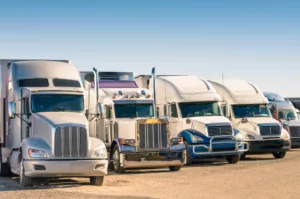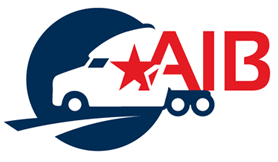17 May Understanding the Different Types of Motor Cargo Insurance
Professional truckers face countless risks, many of which are pretty straightforward. Severe weather, poor road conditions, traffic accidents, and breakdowns are the most obvious. Unfortunately, other risks, such as the loss of cargo, aren’t as apparent.
A certain level of risk comes with transporting goods, whether on land or at sea. Motor truck cargo insurance provides liability protection for freight hauled by a for-hire trucker, regardless of whether the cargo is lost or damaged due to being hit, a collision, or a fire.
What is Motor Truck Cargo Insurance?
Motor truck cargo insurance, also known simply as cargo insurance, covers the freight or commodity that is being hauled by a for-hire trucker. In short, it covers the cargo you are carrying and can pay out if that cargo is lost or damaged.
Common accidents and situations that lead to cargo insurance claims include fires, collisions, or the striking of a load.

Individual Protections Can Be Added to Cargo Insurance
Depending on what you’re transporting, you may be able to add protections to the policy:
- Perishable goods or temperature-sensitive items if the truck’s heating or refrigeration unit fails
- Shippers’ control of undamaged goods covers items that may lose value even if they were not damaged in the accident
- Cargo recovery in the event the truck is damaged, but some of the contents are not, they can be salvaged
As the transporter, you assume responsibility for the cargo you haul. The amount of responsibility should be clearly defined and understood by both you and the shipper before you take control of the load. This is typically done through the bill of lading disclosure, contract, or published tariffs.
Who Needs Motor Truck Cargo Insurance?
Unlike carrier liability insurance, which only covers injuries or damage to property, cargo insurance is more comprehensive. It protects the insured party while goods are in transit, as well as the owner of the cargo.
Coverage is specifically designed to cover risks for a variety of for-hire vehicle types used for local and long-haul shipping, such as:
- Car haulers
- Tractor-trailers
- Cargo vans
- Box trucks
- Flatbeds
Instead of ongoing broad coverage, like a standard commercial auto policy, cargo insurance covers a specific shipment or several shipments that occur during the coverage period.
It protects in the event of equipment failure or an accident that affects the cargo. How quickly you can handle a problem will impact how your customer sees you and your ability to complete the job.
You Will Need to Select a Level of Coverage for Cargo Insurance
When you decide to add cargo insurance to a particular load or time period, you will have options of coverage to select. This coverage can vary from one load to the next, so it’s important to talk to an insurance agent to determine what coverage is available for your particular case. Once you have the facts, you can make the right decision.
 Start by Choosing the Limit
Start by Choosing the Limit
The first step is to determine the limit of the coverage. This means the maximum amount the insurer will pay if a claim is made. The limit you choose should be based on the value of the cargo you carry.
Consider the Deductible
As is true of most truck insurance, cargo insurance generally has a deductible. This is the amount that you will pay out of pocket when you have a claim.
In most cases, a higher deductible will mean a lower premium, while you could pay more in premiums but have a lower deductible.
It is Becoming More Common for Risk Managers to Require Cargo Insurance from Their Truckers
We are seeing more and more risk managers add a contingency for their truckers: you must have cargo insurance. This protects them if their cargo is damaged. We expect the number of risk managers requesting this coverage to continue to rise.
There Are Limits on Motor Cargo Insurance
Not all cargo is eligible for cargo insurance. It is only available on for-hire trucks and only those with certain bodies, including:
- Dump trucks
- The majority of trailers (call us for information on exclusions)
- Box trucks
- Cement mixers
- Cargo vans
- Dually pickups
- Flatbeds
- Car haulers
Cargo Insurance is Not Available on the Following Types of Trucks
Some examples of trucks that are not eligible for cargo insurance include:
- Garbage trucks
- Limousines
- Hearses
- Buses
- Passenger vans
- Ice cream trucks
Cargo Insurance is Generally Not Available on Certain Types of Cargo
Just like some types of trucks are not eligible for cargo insurance, some types of cargo are not eligible, either. Examples include:
- Art
- Live animals
- Jewelry
- Money
- Paper
- Pharmaceuticals
- Alcohol
- Tobacco
- Explosive material
- Radioactive material
Other Restrictions on Cargo Insurance
Additional restrictions exist.
- Cargo is not covered while in the custody of another carrier. If you get cargo insurance, it will begin when you take possession of the cargo and end when you deliver it. The cargo is not covered while it is in the custody of another carrier.
- Cargo is not covered if you own it. Cargo insurance is not available to cover goods or property owned by the person insured. In other words, if you own the cargo, this is not the coverage option for you. It is meant for third-party drivers who are transporting cargo that belongs to someone else.
- Cargo is not covered if it is not under Bill of Lading.
- Cargo put into long-term storage is not covered. For the purpose of this coverage, “long-term storage” refers to storage of more than 72 hours.
- Cargo in shipping containers is not covered.
Contact Us Today for Help with Motor Cargo Insurance
Unpredictable road conditions, lack of proper packing, and accidents can destroy the contents of your load. You may be liable for its value if you don’t take all the preventative measures you can to protect it. Contact American Insurance Brokers for a cargo insurance quote today. We understand your business and have the affordable motor truck cargo insurance protection and coverage you need for virtually any type of truck and goods.






Sorry, the comment form is closed at this time.